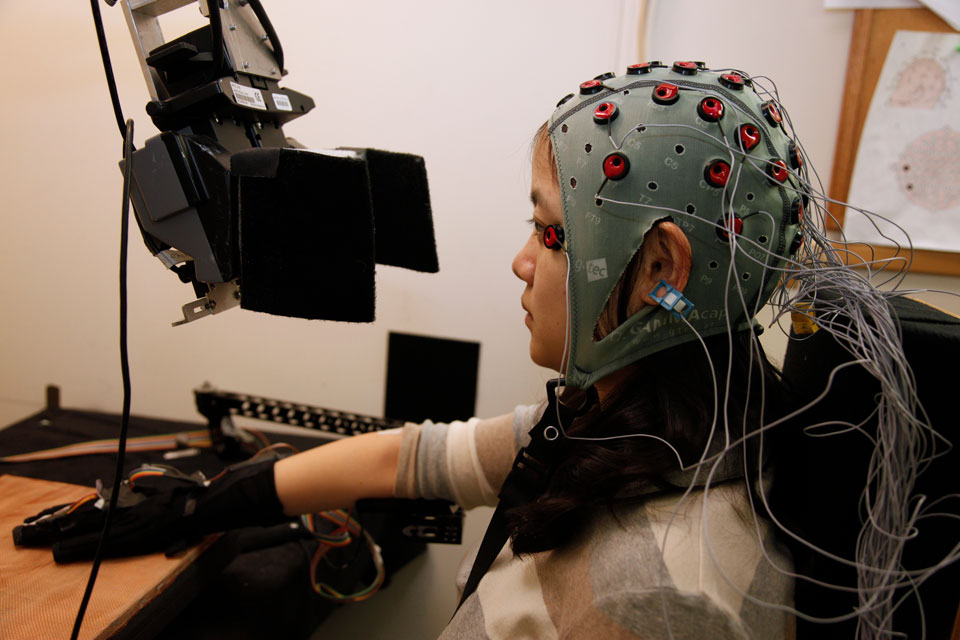EEG Facility

Electroencephalography (EEG) is a measure of the electrical activity of the brain as it projects onto the scalp.
The Graybiel Laboratory employs four biosignal amplifiers produced by G.tec Medical Engineering GmbH for real time monitoring and recording of EEG activity. Each amplifier can record up to 16 independent channels, for a total of 64 channels, sampled with 24-bit resolution at up to 38.4 kHz and digitally filtered. The wide-range input capability of the amplifiers allows to simultaneously measure EEG and other biosignals, such as electrooculography and electromyography, as well as external analog and digital signals.
EEG are measured with active electrodes mounted on an elastic fabric cap, normally arranged according to the international 10-20 system. Each active electrode has a low-noise preamplifier and offers improved quality of the EEG recordings compared to passive electrodes, while also reducing the setup time.
The g.tec amplifiers interface with a recording computer via USB 2.0 connection. The EEG signals can be recorded for offline analysis, as well as be available for real-time applications such as brain-machine interfaces. Experimental paradigms are configured through BCI2000 or Matlab/Simulink (an API package for amplifier configuration is also available). BCI2000 is an open source software package widely used in the brain-machine interface research community which is a very versatile platform for data acquisition, stimulus presentation and online data analysis.